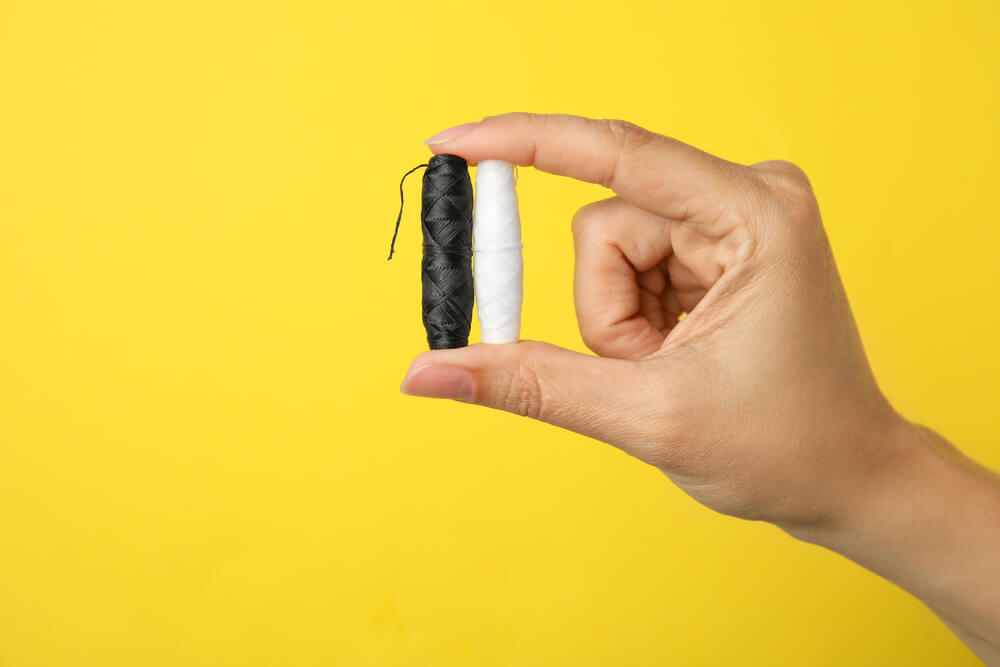When you floss, you are simply minding your oral health.
Do you care about the health of the environment? And, how recyclable are disposable flossers? Let’s sink our teeth deep into this discussion.
What are Disposable Flossers?
For some reason, some people just can’t motivate themselves to floss with the traditional floss, so they turn to floss picks as a “better” alternative.
I am a proud member of this lot of people, but I must admit that I feel bad when I throw away used picks.
I’m left wondering: why can’t we reuse flossers the same way we do toothbrushes? You might be asking yourself the same question.
A flosser is basically a plastic or electrical object for cleaning the spaces between your teeth.
When you use flossers every day, you might prevent dental problems, including gum disease.
Dental flossers help to remove plaque between the teeth. They’re commonly available and are portable owing to their tiny sizes.
Flossers, also known as floss picks, are made from hard nylon plastic and small pieces of floss.
The reason they have gained popularity might be the convenience they offer; they let you floss using one hand.
Flossers Are a Burden to the Environment
Disposable flossers are typical synthetic plastics that hardly break down.
For this reason, it’s advisable to choose natural floss, usually made from biodegradable silk, to maintain your oral health.
Traditional flossers have ended up being a nightmare to our ecosystem.
We all know how difficult maintaining an eco-friendly life can be, especially if you have to make do with necessary evils like disposable flossers.
For me, the bathroom has to be the most intimidating part to “greenify”.
I have lots of materials in the cabinets, some of which I’m not sure if I can recycle or reuse. That alone makes me believe that it might take you longer to do away with disposable flossers; it’s still fine.
Dental Floss Vs. Dental Floss Picks: Which is More Eco-Friendly?
There’s still a debate on whether to choose dental floss or floss picks.
For me, I would rather pick dental floss as it’s environmentally sound when compared to picks. Although neither of them is recyclable, the latter takes ages to break down.
You may be wondering why disposable flossers are not recyclable yet they are made of nylon.
Remember that nylon is just one of the many ingredients used in the manufacturing of disposable flossers.
Can You Reuse Disposable Flossers?
The quick answer to this question is NO! While there’s some debate around this topic, it’s helpful to look at things from an angle of care – self-care and care for nature.
Some people would argue that we should reuse plastics because plastics are strangling both land and the oceans. However, from a medical perspective, flossers must be thrown away after use.
As the name suggests, disposable flossers are to be disposed of after use. Otherwise, you risk spreading bacteria all over your dental system.
With that in mind, we can authoritatively conclude that disposable flossers are not eco-friendly, since they have to be discarded after flossing.
If you hate disposable flossers, try these eco-friendly alternatives:
- Oral irrigators. These are electronic devices that work by shooting a thin jet of air or steam between your teeth to rid them of plaque. For all that care about the environment and their oral health, this might be the best alternative. Check out the best oral irrigators.
- Toothpicks. Most toothpicks are made of rubber or wood, and this makes them a better alternative to plastic flossers. The other reason why you should consider toothpicks is how easy it is to find them. According to this Cochrane review, wooden toothpicks can potentially avert the risk of gingivitis, whereas those made of rubber can reduce plaque.
- Non-Disposable Flossers. Unlike disposable flossers, non-disposable flossers must not be discarded after flossing. Since they contain longer handles, they make it extremely easy to reach the wisdom teeth. Besides, they’re a great alternative for you if you want to help the environment, because they’re not thrown away after use.
- Interdental Brushes. Unlike traditional flossers, interdental brushes are easier to use. They’re small, soft-textured brushes for cleaning teeth and the spaces in between. Their bodies make it easier to maneuver through the mouth.
So, if you have disposable flossers, what do you do with them?
Since disposable flossers are typically not recyclable (due to their mixed materials), ensure that you always contact the manufacturer for more information about the recyclability of a flosser.
However, if you find yourself with disposable flossers, the easiest way out of the mess is to take them to a recycling center or throw them away with the rest of the other garbage.
At the same time, remember that there are better environmentally sound alternatives you can consider.

